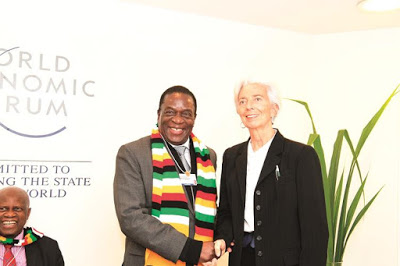Zimbabwe has the second largest informal economy as a percentage of its total economy in the world, after Bolivia, the International Monetary Fund has said.
In a working paper titled, “Shadow Economies Around the World: What Did We Learn Over the Last 20 Years?” in which 158 economies were studied, Zimbabwe, with a score of 60,6 percent, came second to Bolivia which topped at 62,3 percent.
Switzerland with 7,2 percent and Austria at 8,9 percent, were among the lowest in the world. The IMF admitted that shadow economies, which are known by various names around the world, among them hidden economy, grey economy, black economy or lack economy, cash economy or informal economy, were difficult to measure.
“The shadow economy includes all economic activities which are hidden from official authorities for monetary, regulatory, and institutional reasons,” the IMF said. Activities of shadow economies were hidden from authorities for various reasons which include regulatory, monetary and institutional, the international financial institution said.
Monetary reasons, the IMF said, included avoiding paying taxes and all social security contributions while regulatory reasons include avoiding governmental bureaucracy or the burden of regulation. Institutional reasons on the other hand, included corruption law, the quality of political institutions and weak rule of law.
The Zimbabwean Government has acknowledged the growth of its informal economy, which Finance Minister Patrick Chinamasa described as the “new economy” in his budget presentation. The country’s economy heavily informalised in the past two decades as Zimbabwe went through severe economic challenges that saw major formal businesses closing shop or relocating.
Government is still trying to come up with effective means to make sure the informal sector, which is undoubtedly now the biggest employer, can contribute to the fiscus through paying taxes.
Source: New Ziana



